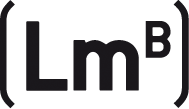Séminaires à venir
Séminaires passés
♦ Malte Gerhold (Université de la Sarre) : Classification of two-faced independences
----
♦ Takahiro Hasebe (Hokkaido University) : Lifting operators on a Hilbert space nicely to the tensor product or free product Hilbert space
----
♦ Oleg Szehr (Swiss AI Lab IDSIA): New insights on the asymptotic behavior of Jacobi polynomials and applications
----
♦ Hao Zhang : Schatten class membership of commutators
----
♦ Alexander Volberg : A_2 conjecture fails for matrix weights because 3/2 >1.
----
♦ Rémi Brindel - On n’en croit pas ses yeux
Hering, Müller-Lyer, Ebbinghaus, Wundt & Fick, Ponzo, Oppel & Kundt, Kanizsa, Jastrow… sont tous des scientifiques qui ont associé leur nom à de célèbres illusions d’optique.
L’exposé, principalement basé sur des illustrations, montre comment le cerveau peut être trompé par des images et tente d’en expliquer le mécanisme.
Lien pour suivre le séminaire à distance : https://webconf.lal.cloud.math.cnrs.fr/b/ste-23y-t9y
----
♦ Amaury Freslon (Laboratoire de Mathématiques d’Orsay) : A la recherche du mouvement brownien quantique
----
♦ Filippo Boni (Université de Naples) - Normalized ground states for Nonlinear Schrödinger equations on metric graphs
----
♦ Henri Lombardi (LmB) – Qu'est-ce qu'une démonstration convaincante ?
Je discute quelques exemples de démonstrations mathématiques et l'on se pose des questions quant à leur force de conviction (telle démonstration est-elle vraiment convaincante ?), et quant à la beauté ou l'utilité du résultat.
Il n'est nul besoin pour cela de faire appel à des mathématiques considérées comme difficiles. Une fois la discussion lancée, les participants pourront proposer les exemples qu'elles considèrent comme plus ou moins troublants.
La thèse défendue (en suivant Bishop) est que les mathématiques sont avant tout une question de «sens commun» et que seule la discussion contradictoire au sein de la communauté mathématique permet de «mettre les choses au clair», autant que faire se peut.
Le lien pour suivre le séminaire à distance reste le même : https://webconf.lal.cloud.math.cnrs.fr/b/ste-23y-t9y
----
♦ Tao Mai (Baylor University, Texas) : An extension of Hilbert transform to hyperbolic groups
----
